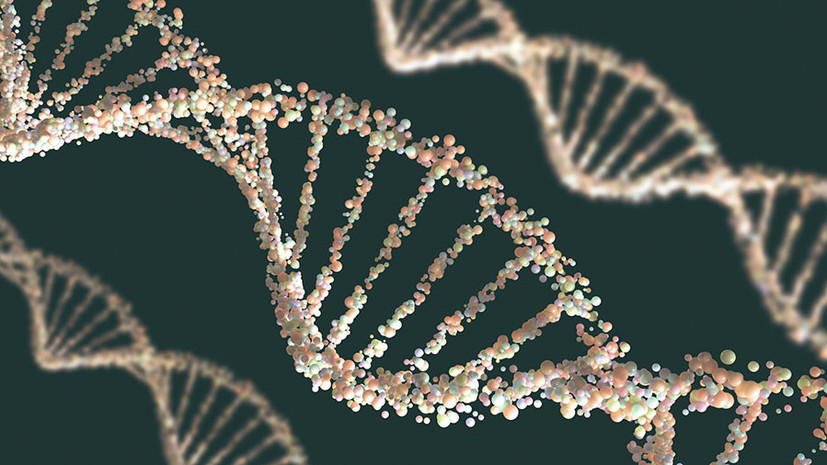A DNA Test Can Confirm Jewish Ancestry
In certain cases, the right to repatriation can be supported by genetic testing (DNA test), which serves to establish a biological relationship with an individual whose Jewish origin has already been officially documented.
Important:
DNA test results are legally valid only if the test is conducted pursuant to an order issued by an Israeli court and carried out in accordance with the prescribed legal procedure.

WHO CAN BENEFIT FROM A DNA TEST IN ISRAEL?

How to Prove Jewish Ancestry Through a DNA Test
If an applicant lacks sufficient documentation confirming Jewish ancestry, the Israeli consul may, following an interview, recommend undergoing genetic testing—or even issue a refusal of the repatriation request. To avoid such outcomes, it is essential to have the documents reviewed in advance by a lawyer, especially if Jewish lineage is through the paternal line.
To conduct DNA testing, a court order from an Israeli court is required. If a refusal has already been issued by the Nativ representative at the consulate, a separate legal process to reinstate the right to repatriation will be necessary — after the DNA procedure has been completed.
A similar process applies to children born to an Israeli father if their birth was not reported to the Israeli consulate abroad within the required timeframe.
To initiate DNA testing, you should consult a licensed Israeli attorney who specializes in family and immigration law.

Step-by-Step DNA Testing Process
How to properly conduct a DNA test so that the results are accepted for repatriation and citizenship by birth:
- Gather documents confirming the need for testing;
- Open a case with the Israeli Family Court (personal presence is not required; a licensed Israeli attorney represents the applicants by power of attorney);
- Obtain approval from the State Attorney’s Office and a court order authorizing the test;
- Conduct the test as instructed by the court in a certified laboratory in Israel and/or at an Israeli consulate abroad (test kits are sent via diplomatic mail from the Israeli lab). Test participants may be located in different countries;
- The attorney receives the court’s decision;
- Submit the results to the Israeli Ministry of Interior or consulate for verification of eligibility for repatriation or citizenship by birth.
If the relationship is distant, or if the test results indicate a percentage that does not meet the threshold for Israeli citizenship, a medical expert may be brought in, and/or a test may be conducted with a different relative.

How Is a DNA Test Conducted?
The lawyer, acting under power of attorney, files a petition with the court on behalf of the applicant and obtains permission to carry out genetic testing. Participants provide genetic material (saliva or blood) either at a certified laboratory in Israel or at an Israeli consulate in their country of residence. The samples are then compared with those of the alleged father or other biological relatives.
If the biological father or his blood relatives reside in Israel, their consent is not required—they can be compelled to undergo testing by court order.
DNA testing is conducted exclusively in licensed laboratories in Israel. Tests performed privately or abroad are not recognized by Israeli courts and will not be accepted for legal purposes.

Why Do You Need a Specialized Lawyer?
It is not possible to prove Jewish ancestry through DNA testing without legal representation. The process is strictly regulated, and the court will not authorize genetic testing unless an attorney is involved.
If the test confirms the applicant’s biological relationship to a person whose Jewish ancestry is documented or to someone who already holds Israeli citizenship, the lawyer can proceed with the repatriation process or apply for citizenship status—particularly in cases involving a child born after the parent acquired Israeli citizenship.
In total, the process may take between 4 and 7 months.
While genetic testing can make the repatriation process more complex, for many applicants, it is the very tool that makes repatriation possible.
The attorneys at our firm have successfully helped hundreds of clients confirm their eligibility for repatriation through DNA testing and obtain Israeli citizenship.
Frequently Asked Questions
Why is a DNA test needed to establish paternity in Israel?
DNA testing is commonly used to establish paternity when it was not legally recognized at birth or when the child was born outside of marriage. It helps confirm biological parentage and plays a key role in resolving legal matters such as acquiring citizenship, proving the right to repatriation, and settling inheritance claims.
Can a DNA test confirm Jewish origin in Israel?
Yes, a DNA test can be used to support claims of Jewish ancestry. This is especially relevant in the context of repatriation, where proof of Jewish roots is required to obtain Israeli citizenship. However, it is important to note that DNA testing must be conducted exclusively in certified laboratories in Israel. Results from tests performed abroad are not accepted by the Israeli authorities.
How to properly conduct a DNA test for repatriation and obtaining Israeli citizenship?
DNA testing is carried out strictly by order of the Family Court in Israel. Physical presence in Israel is not required from any of the participants if handling the process remotely is more convenient. However, if the procedure can be conducted within Israel, it will generally move forward more quickly.
The attorney opens the case and obtains court approval to proceed with the DNA test. Once the examination is complete, the authorized lawyer informs the clients of the results and prepares the necessary documentation for repatriation or citizenship application.
When the test is conducted outside of Israel, the lawyer assists with obtaining sample collection kits from a certified Israeli laboratory and arranging their delivery to Israeli consulates abroad.
What are the advantages of a DNA test for repatriation to Israel?
DNA testing is often used to strengthen the overall document package when applying for repatriation. To assess whether such testing is necessary, it is crucial to consult with a lawyer before the consular review. This can save valuable time and ensure the process is handled as efficiently as possible.
Contrary to popular belief, a consular refusal is NOT required in order to petition the Israeli court for DNA testing authorization.
Who can help with DNA testing and legal issues in Israel?
Book a consultation
Leave your contact details and our manager will contact you shortly.
About us
The office provides legal services in the field of immigration, family, commercial and labor law, conducts real estate transactions, develops individual solutions for businesses and individuals, and provides legal support to Israeli and international companies. Our lawyers regularly participate in the work of specialized commissions at the Chamber of Lawyers of Israel and the Knesset, create judicial precedents, improve regulatory mechanisms in various areas of law, provide advisory assistance to official representative offices of foreign states and significant public organizations located in Israel and abroad.




















